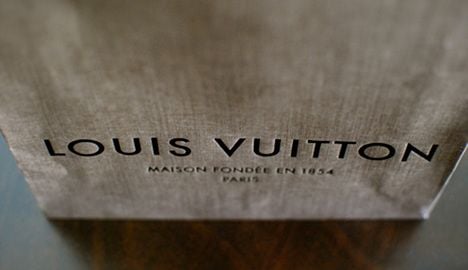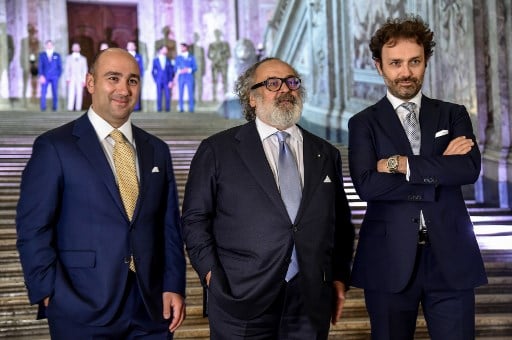The global market for luxury fakes has exploded, fed by Asia where 85 percent of articles seized in Europe are produced and the increasing popularity of on-line shops that give the buyer a sense of anonymity and impunity.
To fight the scourge, the Comité Colbert grouping 75 French luxury goods makers including Dior, Cartier and Remy Martin, is launching a poster campaign in French airports ahead of the summer to dissuade travellers from buying fake.
“You can call your lawyer with this telephone,” reads one of the posters, above a picture of a counterfeit Chanel mobile.
France has the toughest anti-counterfeit legislation in the world, explains Comite Colbert boss Elisabeth Ponsolle des Portes, with simply possessing a counterfeit good here considered a crime since 1994.
“In France you can be fined up to 300,000 euros ($374,000) and jailed for three years” if you own counterfeit goods, the posters say.
The Comite Colbert has staged campaigns every two years since 1995, but this time Italy, the Czech Republic, Hungary, Slovakia, Romania and Croatia are getting involved, with their customs officers able to use the posters for free.
Ponsolle des Portes hopes that more countries will get on board.
“This is important for Europe, in terms of jobs,” she said.
Counterfeit seizures doubled in Europe between 2009 and 2010, reaching 103 million items worth 1.1 billion euros, with customs officers themselves often unable to tell the fake from the real.
And according to 2009 Eurobarometer statistics, one in five EU citizens have unknowingly bought counterfeit goods.
As home to many of the world’s best known luxury brands, France is particularly exposed. Fake goods cost the economy 30,000 jobs and six billion euros in lost revenues every year, according to the Comité Colbert.
Clothes, sunglasses, perfume, cosmetics, leather goods, half the 8.9 million counterfeit articles seized in France in 2011 were luxury goods, with Louis Vuitton products the most copied.
Globally the underground fake goods economy is booming thanks to Internet shopping, as testified to by the increasing number of items seized in postal sorting offices.
Which is why the Comité Colbert now wants to get the cooperation of banking groups and payment handlers, such as Mastercard, Visa, American Express and PayPal, to track the illegal trade online.







 Please whitelist us to continue reading.
Please whitelist us to continue reading.
Member comments